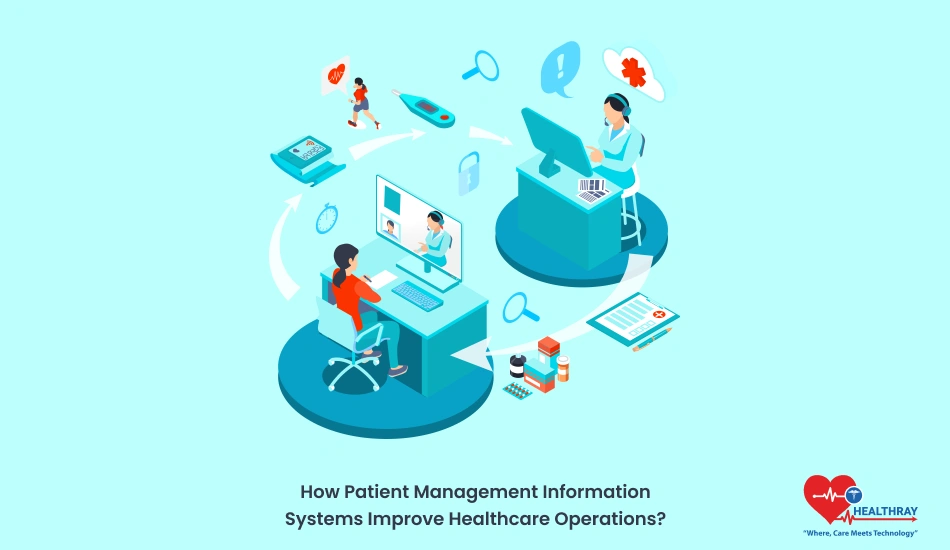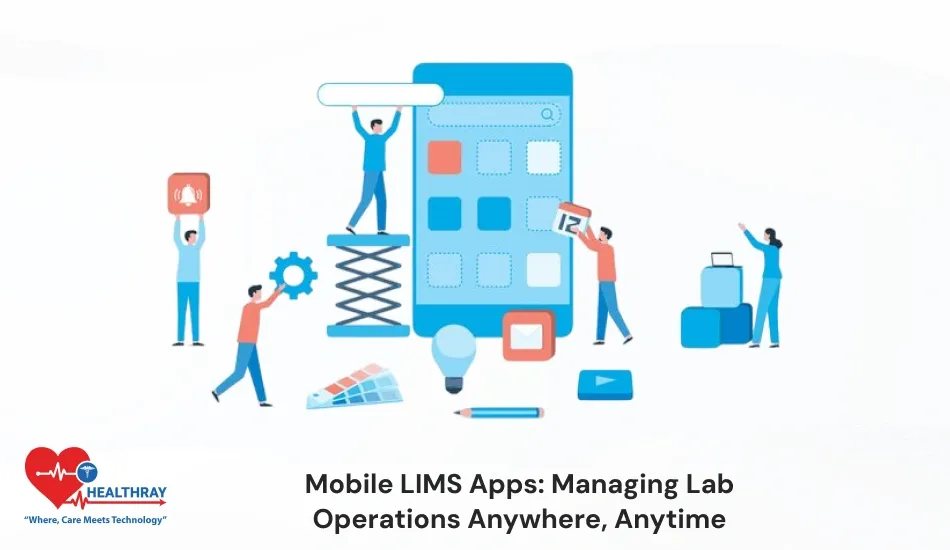Operational management of a healthcare facility is another arduous enterprise in times of high patient volumes and complex operations. PMIS systems lead change toward the transformation of the systems that hospitals and clinics use to carry out their operating processes day in and day out. With everything from automating the mundanities, such systems ease administrative work as much as they enable better patient care quality, with a huge share of responsibility between the administrator, the IT, and health professionals.
Picture a world where everything is interconnected, such as patient records, billing, scheduling, and treatment plans. PMIS is where all this happens and provides tools for companies to enhance the workflow and reduce errors. We’ll discuss in this guide how the Pharmacy Management System aids various stakeholders, how they alleviate common challenges, and how they work with modern health trends.
What Exactly Is a Patient Management Information System?
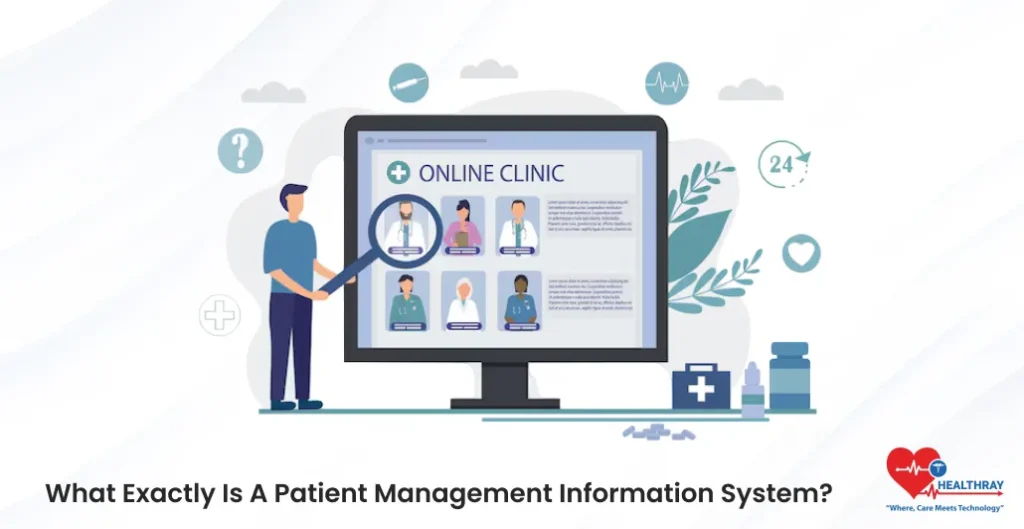
A PMIS is basically an electronic solution meant to help healthcare facilities manage patient-related information and streamline operations. It is the central hub for all data like medical histories, appointment schedules, billing records, and treatment plans to be stored and accessed from. It ensures that healthcare teams provide consistent and quality treatment.
Some Key Features of PMIS:
- Centralized Data Management: Gives one-point access for lab results, prescriptions, medical histories, and other patient information.
- Scheduling and Appointment Handling: The booking of appointments, reminder SMSs to patients, etc., minimize missed appointments.
- Billing and Insurance Processing: Facilitates easy payment and insurance claims.
- Reporting and Analytics: Generates reports for analysis and informs decision-making toward operational efficiency improvement.
- Secure Data Access: Locks down all relevant data according to rules such as HIPAA to ensure confidentiality of sensitive patient information.
If you only see PMIS as a data repository, you should also remember that it provides an efficient way of working and improves patient outcomes. Hence, a good administrator, IT, or health practitioner should be well-versed in the working of the PMIS to maximize its capability.
Pros of PMIS for Healthcare Operations
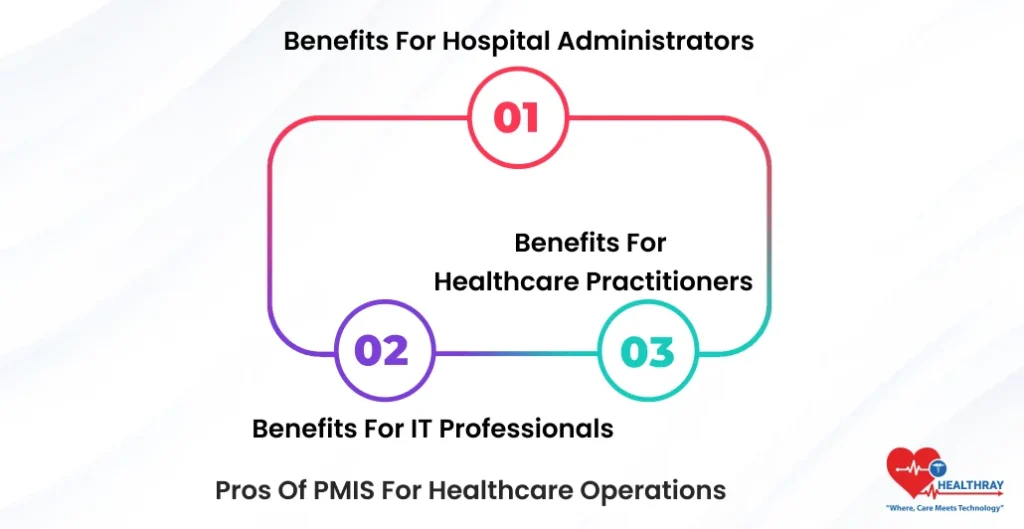
PMIS adds great value to the healthcare ecosystem. While contributing towards improving administrative systems, these provisions also support good patient care; hence, hospital administrators, IT professionals, and healthcare practitioners urgently need the systems.
Benefits for Hospital Administrators
- Streamlined Administrative Workflows: PMIS automates repetitive tasks like appointment scheduling, billing, and patient registration. This reduces administrative burden, and thus smoothens the workings.
- Cost Savings: PMIS cuts operational costs by reducing manual mistakes and consumerizing efficiencies. Less paperwork also means less use of time and resources.
- Enhanced Decision-Making: By accessing real-time data with the help of analytics, administrators will be able to make informed decisions optimizing resource allotment, and staffing as well as overall management.
Benefits for IT Professionals
- Robust Data Security: PMIS applies advanced methods, like encryption and user access control, to protect patient data from breaches.
- Scalable Infrastructure: The system can be adaptable for the future needs of health facilities with new users and departments and even multiple locations.
- Seamless Integration: PMIS can integrate with already existing systems such as EHRs, laboratory systems, and pharmacy software for a single digital ecosystem.
Benefits for Healthcare Practitioners
- Fast Access to Patient Information: PMIS guarantees rapid access to complete histories, lab test results, and treatment plans of a patient for the effective and timely provision of aid.
- Improved Workflow Efficiency: Automation enables doctors and nurses to spend less time doing administrative chores and more time providing care to patients.
- Increased Collaborations: All departments will be connected through a single platform, reducing communication challenges and improving teamwork in the coordinated delivery of care.
Planning the Cloud-Based Patient Management Systems Program
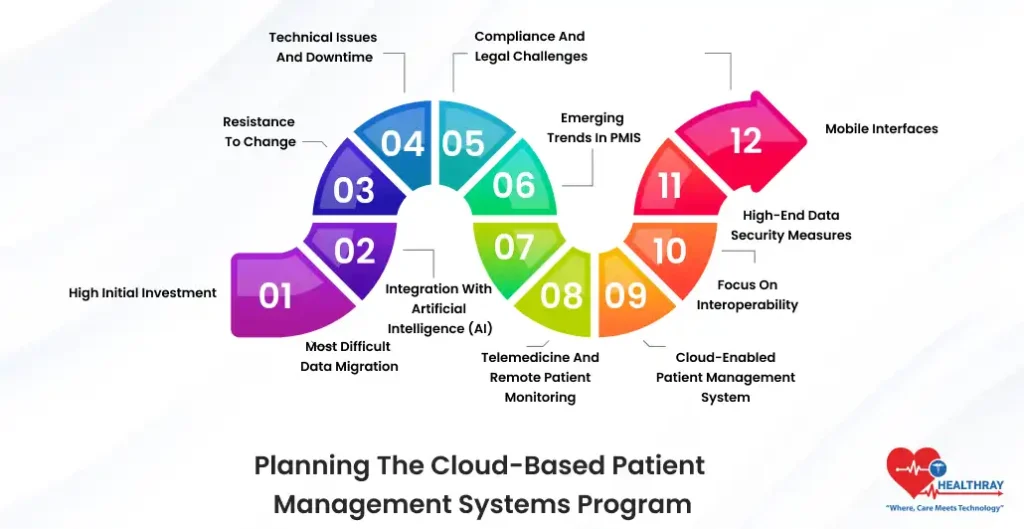
PMIS may come with all their transformational benefits, but some challenges are encountered when trying to implement them. These are important considerations for hospital administrators, IT professionals, and even healthcare practitioners as they strive for smooth adoption and operation.
High Initial Investment
Although PMIS offers beneficial transformations, it is burdensome to implement them. Know-how would aid complete understanding of such challenges to be smartly equipped with hospital administrators, IT professionals, and even healthcare practitioners in facilitating smooth adoption and operation.
Solution:
Implement modular systems with gradual upgrading.
Search for government grants or financing options for healthcare technology.
Most Difficult Data Migration
Most facilities are having trouble transferring patient records and operational data from historical formats to a new PMIS. The process can consume much time and error-prone if not handled properly.
Solution:
Data audits should be done out in front of time to ensure authenticity prior to moving everything.
Work with experienced vendors, who provide migration support and tools.
Resistance to Change
They are afraid to take on the problem of new technology that is usually seen as complicated and a threat to one’s job security. This slowness can also be reflected in the effectiveness of the system.
Solution:
Conduct extensive training workshops according to different user groups.
PMIS saves much labor by improving the quality of care and lowers workloads; this should be in bold letters.
Technical Issues and Downtime
Anyone familiar with digital solutions knows that just like any other digital solution, a PMIS will have some technical glitches, particularly during the initial implementation phase. It only results in halting the hospital work process at that particular time.
Solution:
No partner for more dependable vendors that provide 24 x 7 technical support.
Have some contingency plans in place in order to minimize disruptions.
Compliance and Legal Challenges
In addition to meeting all regulatory standards set by HIPAA or GDPR, PMIS must ensure that patient information is secured. Such non-compliance can cause legal penalties and loss of credibility.
Solution:
Procuring PMIS in such a way that compliance is part of its procurement choice.
Conduct regular audits to ensure compliance with the law.
Emerging Trends in PMIS
Much is changing in the healthcare industry, and Pharmacy Billing Software is at the forefront of that change. Such latest advances will thoroughly enhance the functionality of PMIS, almost making it much more intuitive, efficient, and future-ready in terms of the healthcare needs of this world.
Integration with Artificial Intelligence (AI)
Artificial Intelligence is now revolutionizing PMIS with predictive analytics and support for decisions. Predictive Analytics allows a system to:
• Predict patient outcomes with historical data.
• Pinpoint patients at risk for proactive attention.
• Automate routine processes like appointment scheduling or follow-up reminders.
Impact: More personalized care by healthcare providers while improving the operational efficacy.
Telemedicine and Remote Patient Monitoring
PMIS have now adopted telemedicine features that allow remote consultations from home as part of telehealth, and they also implement remote patient monitoring capabilities, for example:
video conferencing capabilities that allow for virtual appointments.
By connecting wearable devices to monitor real-time health metrics, patients can send in their health data for additional analysis.
Impact: This trend guarantees that patients who are less able to visit facilities regularly continue receiving care.
Cloud-Enabled Patient Management System
PMIS are being changed by cloud technology for:
- Remote Access to Patient Information for Consultations Anywhere.
- Cost-Efficient Scaling for a Growing Healthcare Facility.
- Improved disaster recovery through secure cloud backups.
Impact: Cloud-based systems will streamline infrastructure costs and make PPAM more accessible to smaller and medium-sized clinics.
Focus on Interoperability
Most modern PMIS are built to unite with other healthcare systems seamlessly, such as:
- Electronic Health Records (EHR)
- Laboratory Information Systems (LIS)
- Accessing the Pharmacy Management System
Impact: It creates a unified ecosystem where all departments can access consistent updated patient information.
High-End Data Security Measures
Amid the rising cyber threats, PMIS today comes with advanced security measures, such as.
- Multi-factor Authentication
- Protection of Stored and Transmission Data
- Regular Lock Patching against Security Bugs.
Impact: These measures will protect sensitive patient data and maintain regulatory compliance.
Mobile Interfaces
Healthcare suppliers are increasingly relying on mobile devices more than before. PMIS are thus developing mobile-compatible platforms that will permit:
- Swift access to patient data from smartphones or tablets.
- Easy communication between staff on the move.
Impact: Mobile PMIS enhances convenience and ensures faster decision-making in critical situations.
Case Studies: Real-Life Successes
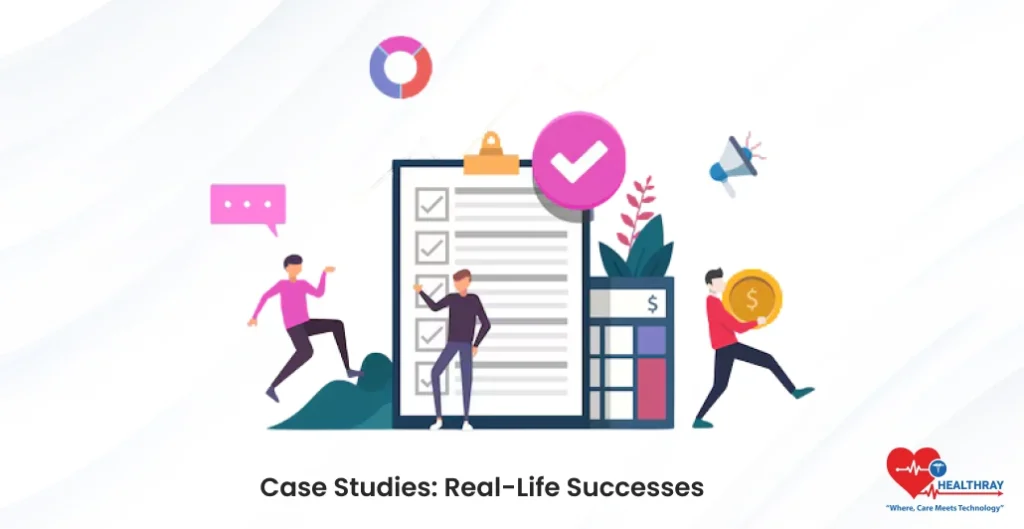
Within the cases of many healthcare facilities around the world, PMIS has done wonders. Here are some examples of its impactful successes in hospitals and clinics.
Efficient Workflow at a Multi-Specialty Hospital
Below: The 200-bed multi-specialty hospital that poorly managed its manual patient records was delayed in the delivery of care and had errors in billings.
Solution: The PMIS included all three modules of patient records, appointment scheduling, and billing into one system.
Results:
- Administrative workload reduced by 40 percent.
- Decrease of billing errors by 25 percent.
- Average patient waiting time reduced by 30 minutes.
- Staff reports improved collaboration among departments.
- Securing Clinical Data at a Regional Clinic
Clinical Site in the Region to Be Improved in Data Security
Context:
A regional center with multiple clinics found it challenging to keep consistent patient data secure while making that same data accessible through a network.
Solution: The clinic has opted for a PMIS sourced in the cloud and which has sophisticated advanced encryption and access controls.
Results:
Nullified breaches of patient information.
Access to data became seamless across all points.
IT time spent in maintenance was reduced by 50 percent.
Achieves regulatory compliance with health data.
Improving Patient Outcomes in a Rural Health Center
Background: A rural health center failed to afford all those tools that could track patient history and the follow-ups had not been included.
Solution: The center now established and attached a PMIS mobile-friendly so as to support the patient record system and everything in telemedicine.
Results:
- Adherence to materials improved by 60 percent, as there were automatic reminders.
- Therapists can access over 45% of patients because the use of tele psychiatry services is being enhanced.
- Three-fifth of the consultation time that was indirect could be used for accessing patient records by providers.
- Those who live under the overall satisfaction level score increased by 20 percent.
Integration of Telemedicine at an Urban Clinic
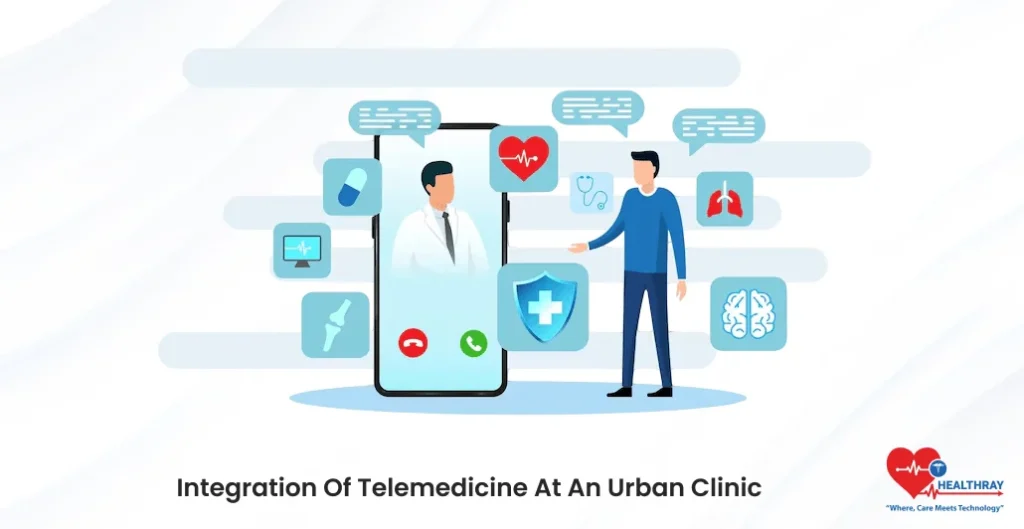
Background: An urban clinic wants to grow its services to telemedicine for patients who cannot come in person.
Solution: The PMIS selected by the clinic has built-in telemedicine features, such as video conferencing and remote patient monitoring.
Results:
In just six months, telemedicine consultations amounted to 30 percent of visits.
Patients with chronic problems can be monitored remotely by the provider, which lowers the rates of hospital re-admissions by 15 percent.
Cost of operations decreased by 10% based on decreased physical utilization of resources.
How to Choose the Right PMIS?
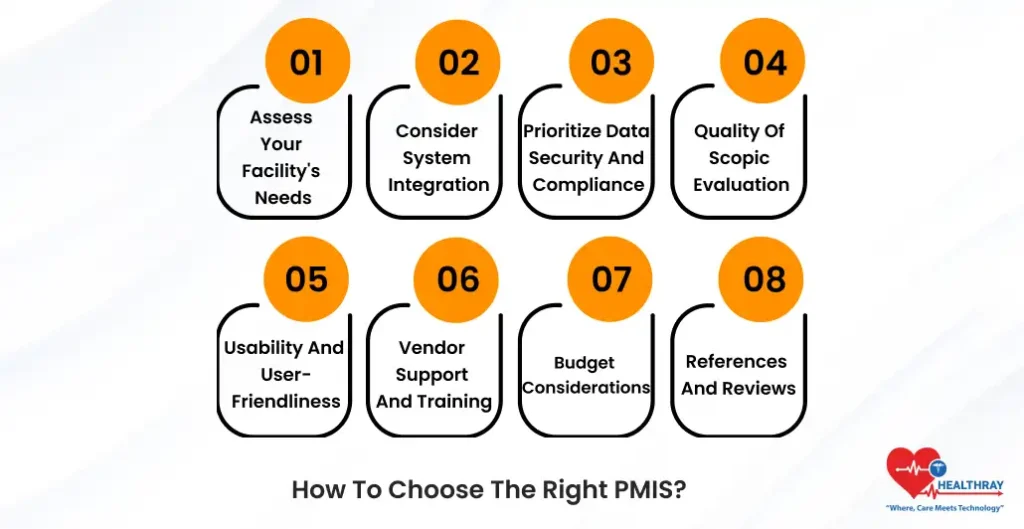
Selecting the right Patient Management Information System comes as a very important decision for the healthcare facility. The right system can change everything, while a wrong one may create more problems than it solves. Here’s how to do it right:
Assess Your Facility’s Needs
- Current Pain Points: Identify inefficiencies in your current workflow, such as scheduling delays, billing errors, or data access issues.
- Size and Scope: Consider the scale of your operations. Are you a single clinic, a multi-location network, or a large hospital?
- Features Required: Determine which features are non-negotiable, such as telemedicine support, analytics, or mobile access.
Consider System Integration
The PMIS should integrate with the tools you are currently using already, such as:
- Electronic Health Records (EHR) for full patient histories.
- Laboratory Information Systems (LIS) for optimized management of lab results.
- Pharmacy Management Systems to ensure correct prescriptions and timely stock updates.
Checklist: Check with vendors on whether their systems can connect with your current software.
Prioritize Data Security and Compliance
All healthcare facilities handle sensitive patient data meant to be kept secure.
- Compliance Standards: Make sure that the PMIS adheres to regulations such as HIPAA in the U.S. or GDPR in Europe.
- Security Features: Look for characteristics of strong encryption, role-based access control, and regular systems updates.
Pro Tip: Ask vendors their incident response plans in the event of a breach.
Quality of Scopic Evaluation
Evolving health care requirements mandate that a PMIS would not grow old real quickly, but change with the times:
- Future-Proofing: Cloud-based solutions offer the needed flexibility.
- Modular Expansion: The installation of solutions to the system will include those modules that allow you to add features when you wish to need them.
Usability and User-Friendliness
Ease of use is the biggest advantage that can help staff adopt the new system.
- Intuitive Design: Verify that the PMIS employs a clear, user-friendly dashboard.
- Role-Based Customization: People (administrators, IT professionals, and practitioners) categorized into different roles should have user tailored interfaces.
Tip: Request a demo to see how user-friendly it feels for your team.
Vendor Support and Training
Reliable support ensuring smooth implementation and ongoing transition and operation.
- How supportive of vendors is he in migration and setup?
- How much training do they provide to users throughout all levels?
Isolated support: Look for 24/7 customer service or owning a dedicated account manager.
Budget Considerations
PMIS prices range widely depending on features and scale.
- Transparent Pricing: Ask for a thorough price quotation from vendors so you’d have an idea what to expect in licensing, installing and maintaining.
- ROI Analysis: Estimate future savings through efficiency and improved patient outcomes.
References and Reviews
Talk to other health facilities using the PMIS that you are considering.
- Learn how to implement it, how the support is, and its reliability scores.
- Look into online reviews and ratings for more feedback.
Conclusion
Patient Management Information Systems become mandatory systems for modern-day health facilities seeking to provide efficient services of care in high quality. The systems will later become solutions to solving some of the urgent operational problems, and improvement of the flow of work, and enhancing better patient experiences from hospitals, clinics, and multi-location networks.
PMIS will cut the costs for administrators of the Hospital Management System while ensuring that decisions are made, driven primarily by data. IT professionals are provided with scalable secure systems that can easily integrate with today’s technology. Meanwhile, streamlined workflows keep the healthcare provider’s attention on the needs of his patients.
In this respect, benefits, challenges, emerging trends, and selection criteria for PMIS adoption, which a healthcare facility would use to make the best decisions, are presented. The result will be a more efficient, secure, and patient-centered healthcare ecosystem. Investing in the right PMIS can transform an organization, for the future-minded.
